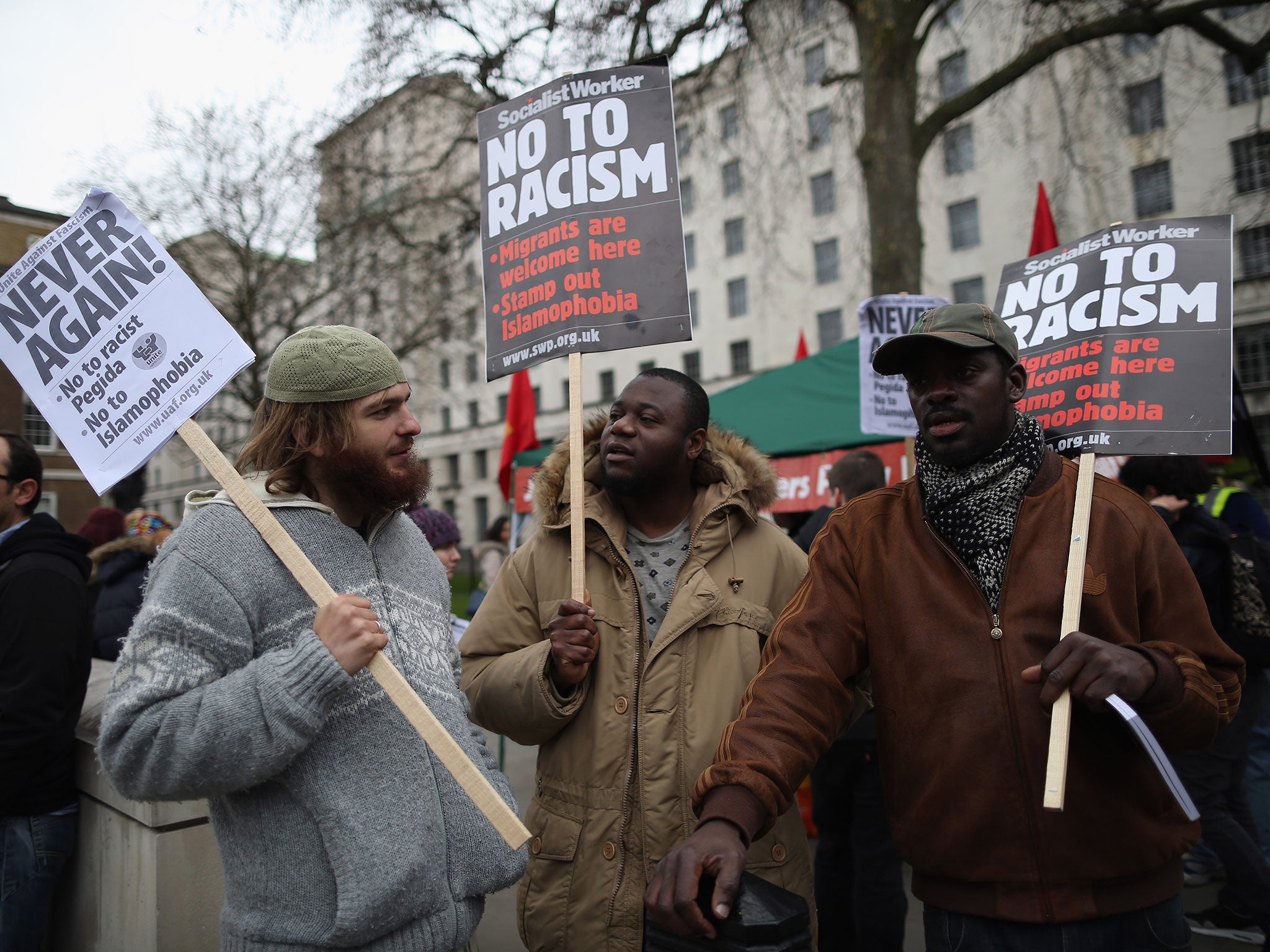Crackdown on 'corrosive' online hate crimes launched by Crown Prosecution Service
Changes 'will remind the trolling brigade that there are real consequences for hitting the button' and will 'undoubtedly lead to an increase in prosecutions'

Hate crimes committed on social media will be treated as seriously as similar street-based offences, according to new guidelines issued by the Crown Prosecution Service as they launch a crackdown on hate speech online.
Recognising the “corrosive effect” of hate crime on British society, Alison Saunders, the director of public prosecutions, announced the CPS will now revise prosecutions of such crimes “with the same robust and proactive approach used with offline offending”.
The changes could lead to a dramatic increase in those being prosecuted for posting prejudice attacks on social media platforms such as Twitter, Facebook, and Instagram.
Jenny Wiltshire, the head of general crime at Hickman and Rose solicitors, told The Independent the change in policy from the CPS reflects “the fact that the internet has become a breeding ground for misogynist, racist and homophobic views”.
She continued: “The decision to treat offences committed online no differently from offline offences will undoubtedly lead to an increase in prosecutions. It will also remind the trolling brigade that there are real consequences for hitting the button”.
According to the CPS the policy statements have been updated to take into account the mounting number of cases sparked by abuse on social media and covers all the different strand of hate crime, including religious and racist, disability, homophobic, biphobic and transphobic.
They added that between 2015-16, prosecutors completed 15,442 hate crime cases - the highest number ever recorded.

“Hate crime can be perpetrated online or offline, or there can be a pattern of behaviour that includes both,” the CPS said in a statement. “The internet and social media in particular have provided new platforms for offending behaviour.”
Prosecutors should also understand the changing nature of platforms and their policies for taking down material, while being alert to the need to identify “originators” as well as “amplifiers or disseminators”, according to the documents.
The presence of hateful content on social media sites has repeatedly been highlighted and community groups monitoring anti-Semitic and Islamophobic abuse report that a significant proportion of incidents involve the internet.
Fiyaz Mughal, the founder of campaign group Tell Mama, which measures Isamophobia in Britain, said he welcomed the focus on social media platforms, adding: “Those who think that street based hate crimes should have precedent over online ones, should realise there is no competition in getting access to justice.”
Paul Twocock, the director of campaign at Stonewall, told The Independent that discrimination remains an everyday reality for many LGBT people at home, at work and in their communities.
“Despite the progress we have made, we know that hate crime against LGBT people is on the rise. This is unacceptable. We will continue to support the CPS, as we work towards a society in all LGBT people can be accepted without exception,” he added.
But Stephen Silverman, the director of investigations at the Campaign Against Anti-Semitism (CAA) said the “relentless three-year rise” in anti-Semitic crime has been met by a “decrease in the already low prosecution rate for offences against Jews and a complete lack of transparency by the CPS with regard to the manner in which it deals with antisemitic crime”.
He continued: “Our latest survey of the Jewish community shows the extent to which it has lost confidence in the will of the criminal justice system to protect it. Unless the CPS changes its stance towards crimes committed against Jews, those who commit them will be emboldened to continue offending and Britain's Jewish population will continue to worry that it does not have a long-term future in this country.”
Rising levels of hate crime in Britain have been highlighted since the European Union referendum last year, with reports soaring in the month after the vote by 41 per cent – equivalent to 5,468 more crimes recorded than on the same month in the previous year.
And earlier this month police registered increases in hate crimes in the days immediately following the spate of terrorist attacks in Britain, including the atrocities at Westminster, Manchester and London Bridge.
But following these spikes the CPS consulted community groups and criminal justice partners to produce revised statements on hate crime.
Elsewhere in the documents, the CPS said it would, for the first time, knowledge that victims of biphobic hate crime “have different experiences and needs to victims of homophobic and transphobic offences”.
Ms Saunders said that hate crime has a “corrosive effect” on British society and that it was a priority area for prosecutors. “It can affect entire communities, forcing people to change their way of life and live in fear,” she said.
Ms Saunders added: “These documents take account of the current breadth and context of offending to provide prosecutors with the best possible chance of achieving justice for victims. They also let victims and witnesses know what they should expect from us.
“I hope that, along with this week’s campaign, they will give people the confidence to come forward and report hate crime, in the knowledge that they will be taken seriously and given the support they need.”
Ed Davey, the Liberal Democrat home affairs spokesperson, told The Independent his party welcomed the guidance, adding: “Hate crime has no place in our society and these criminal bullies must know our laws and legal system will fully support their victims – and hep the police, CPS and courts punish all who commit hate crime.
“We have already seen a rise in reporting but I hope this guidance will encourage even more to come forward to stamp out this evil,” he added.
Join our commenting forum
Join thought-provoking conversations, follow other Independent readers and see their replies
Comments
Bookmark popover
Removed from bookmarks